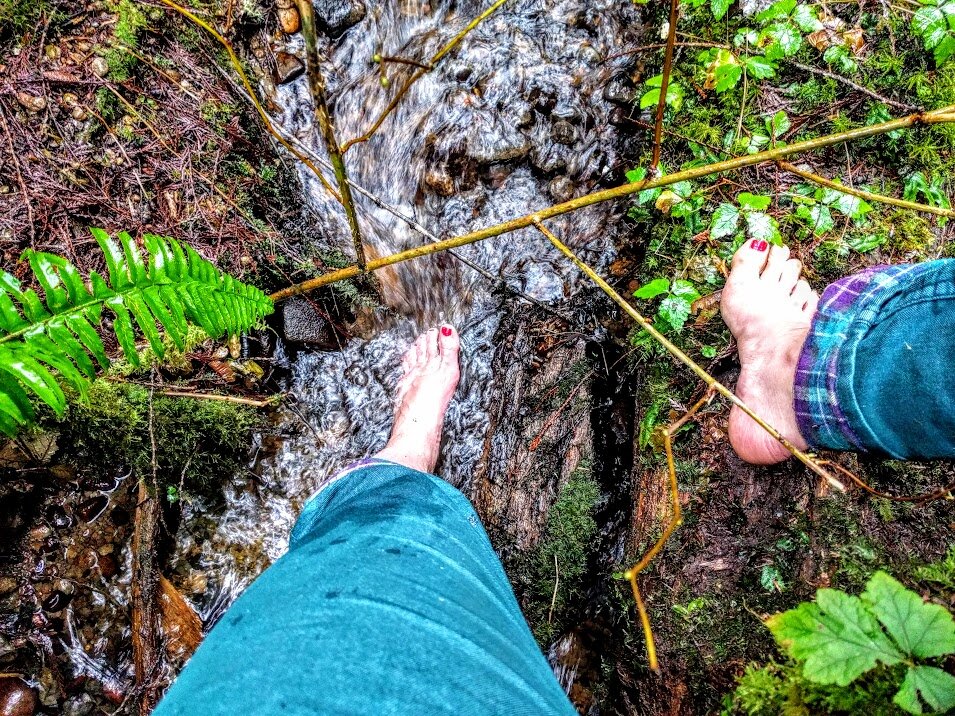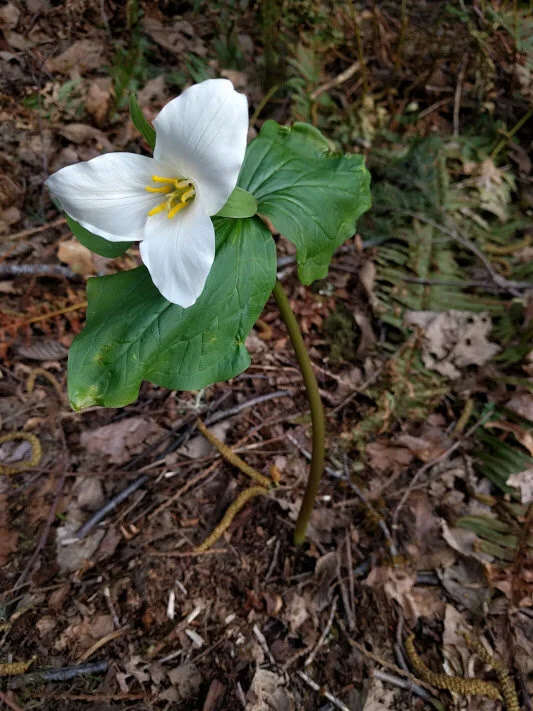You're Not Alone (though it probably feels like it)
In 2016, I thought I was going crazy. I had wrestled with cyclical depression since my teenage years. I had gotten various forms of help and was, I thought, well on my way on an alternative healing path. I meditated, taught yoga, and was the director of a well-regarded non-profit trauma-informed yoga studio. But over the course of a few months that fall, I found myself slogging through another cycle of depression, and finding that my learned methods of managing were no longer working. To my surprise, the depression was the more tolerable part: it actually provided a kind of blanket of functionality, containing a newly discovered anxiety-bordering-on-panic I was beginning to experience, severe enough that it started to break through the depressive fog with increasing frequency. Eventually, just the thought of having to stand in front of a room of students and attempt to speak a sequence of movement instruction levelly, sent me into a weeping hysteria.
I had had the profound privilege of having helped shape an organization addressing mental health in an alternative way, and from which I could ask for a mental health leave of absence. I took six weeks off, and in that time, wove a nest of care around myself whose healing affect still amazes me. The panic attacks and depression almost immediately lifted, and I had the space to go deep into my own healing and spiritual practice, to address old traumas that were no longer willing to be ignored. To my bewilderment and again, tremendous privilege, I found myself enrolled in an energy healing program, and was guided over the next year by a skillful mentor within a unique spiritual community that didn’t pathologize my condition or see it as a lapse of my “personal responsibility,” but rather nurtured me into what I now recognize as my spiritual calling.
Had I been another person in another context, so much could have gone so differently. I could have been diagnosed and medicated for any number of things years ago. And to be clear, I have taken medication, I may again, and I in no way object to its use—I think it’s such an important tool, a break-through contribution of western medicine, and when used skillfully and as one of many tools, for some it can be absolutely life-changing for the better. However, I believe it to be just one tool among many and something we have become overly dependent on as the first line of defense for all forms of health (but that’s a whole other blog post).
The day my mind felt like it was finally breaking, when I forgot what language I spoke and couldn’t understand the sounds the woman on the phone was making…so many different things could have happened to me had my symptoms been more severe or more stigmatizing, had I been transgender or black or brown, had I not had a community of people around me who could see my struggle as more than just a personal problem of broken brain chemistry. Even still, in the following year, I experienced tremendous breakdowns and breakthroughs. I transitioned out of my job and withdrew from much of my larger community. I sifted through a lot of pain. I also discovered my spiritual gifts as a healer and took active steps towards my vocation as a priest/ess. I connected to my ancestral lineage. I am in a different place now, and I still struggle sometimes.
I will reiterate: it could have been so much worse. I’m sure for many of you reading this it has been way worse. I could have been my grandmother, for example, who was diagnosed with bi-polar and spent much of my father’s life in and out of institutions. She was a brilliant pianist and teacher, with an exacting sense of the right order of things and no fear to tell you when you were out of line. I did not know her well. Family lore tells about her wall-papering the whole house during sleepless days of mania, interspersed with long stretches of debilitating depressions; and weeks in the hospital receiving electroshock treatment.
I share these stories—my own, my grandmother’s—as a deliberate practice of what Chicana feminist theologian Gloria Anzaldua called a “prioritization of a bodily epistemic standpoint,”—that is, the stance that centers particularly located bodies—especially women’s bodies—black and brown bodies, disabled and transgender bodies, and the bodies of all those dominant culture does not value. Such a stance holds that these/our bodies know something and have a critical relevance in cultural, theological, medical, spiritual meaning-making. These/our bodies hold real knowledge. As Brazilian ecofeminist theologian Ivone Gebara insists, it is an ethical imperative to begin with one’s own lived experience and wonder: “What does our personal experience teach us? What does our experience of living with human joys and suffering reveal?”
The claim of Anzaldua, Gebara, and much of feminist, womanist, mujerista, queer and liberationist thought, is that there are “embodied and experiential ways of knowing” that the western world—and western medicine in particular—have at best ignored, and at worst, systemically silenced. I believe this epistemic (knowledge-shaping) starting point, is incredibly important to the field of mental health. Like my many ancestors and teachers who have spoken from the margins of normativity and history, I have come to believe that it is only by story-telling about our real lives that we break from the imposed silences of the dominant cultural narrative that individualizes, pathologizes, and stigmatizes mental illness. It is a risky business, to be sure: as Audre Lorde writes, “the transformation of silence into language and action is an act of self-revelation, and that always seems fraught with danger.” And yet she continues: “your silence will not protect you,” and “that visibility which makes us most vulnerable, is that which also is the source of our greatest strength.” So those of us who can speak: speak.
“Your silence will not protect you...that visibility which makes us most vulnerable, is that which also is the source of our greatest strength.”
This is just my own story. What’s yours? I would love to hear it and to wonder with you: what difference could it make for you to share your story without fear of being dismissed as “crazy”? Or to have your “crazy” embraced with curiosity and kindness? What if your body, your life, and your “crazy” were part of a bigger story that you are telling? A bigger story we are writing together as a human family?
If you are a trauma survivor struggling with your physical and psychological symptoms, and/or the isolation and stigma of mental illness; or if you are past your acute period of symptoms, but still making meaning of your experience and integrating them into a balanced life, we invite you to connect with us! You can schedule a FREE 30-minute one-on-one conversation here.
OR if you’re looking for community, consider joining us for our monthly Stillness at the Center. Get details and dates by clicking the button below:
SOURCES
Gebara, Ivone. Longing for Running Water: Ecofeminism and Liberation. Minneapolis, MN: Fortress Press, 1999.
Henderson-Espinoza, Robyn. “Gloria Anzaldua’s El Mundo Zurdo: Exploring a Relational Feminist Theology of Interconnectedness,” Journal for the Study of Religion, vol. 26 no. 2 (2013).
Lorde, Audre. Sister Outsider: Essays and Speeches. Berkeley, Calif.: Crossing Press, 2007.
Additional thanks to Dr. Jennifer Fernandez for her support in this research and writing effort.

